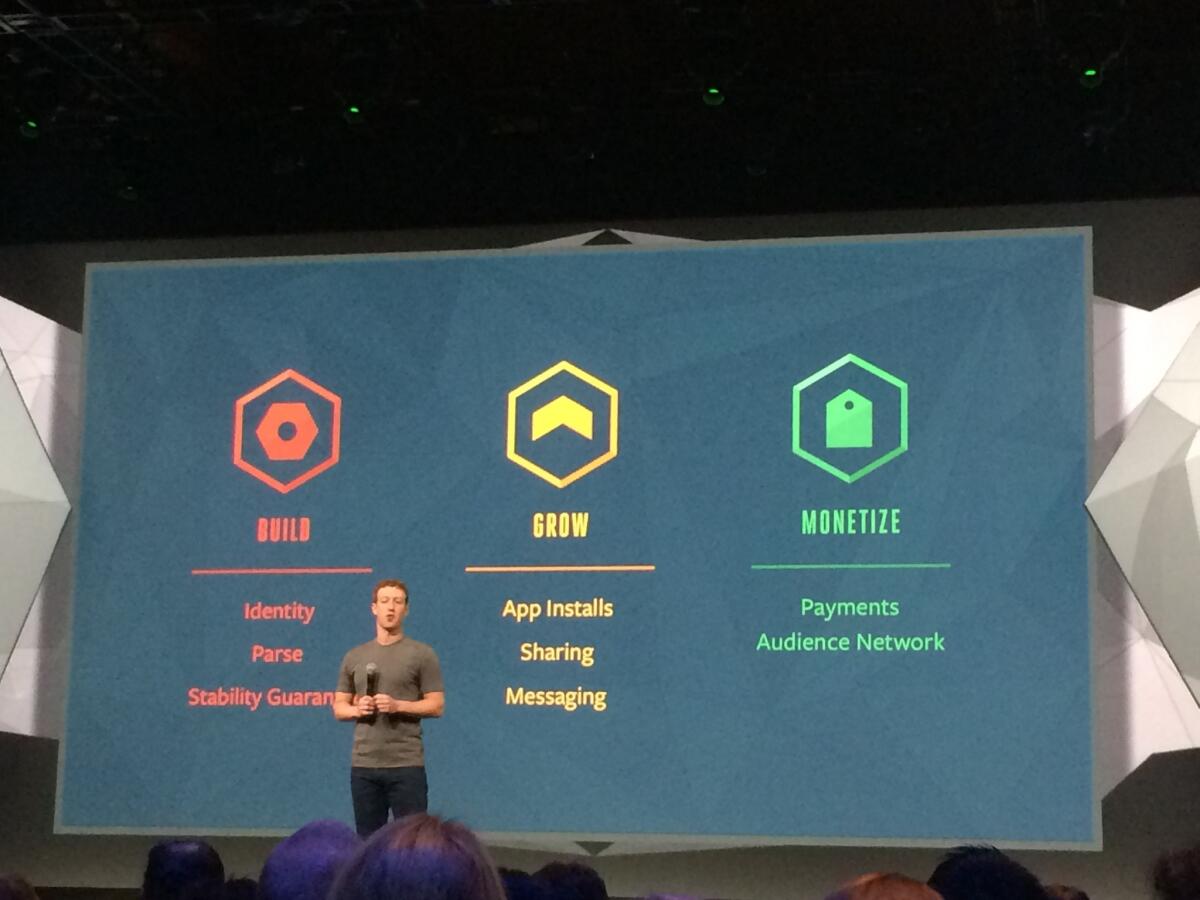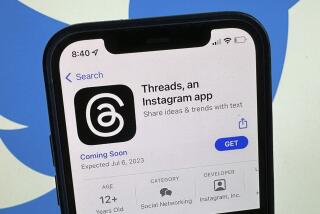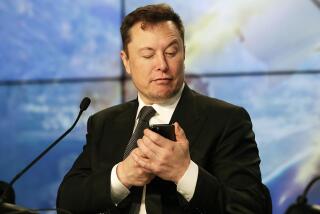Facebook developers conference: It’s a mobile, mobile, mobile world

- Share via
Reporting from SAN FRANCISCO — Remember in the olden days, when people used Facebook on their desktop computers? Those ancient times of two-plus years ago were barely acknowledged on Wednesday at the company’s annual developers conference.
The only thing on the mind of Facebook Chief Executive Mark Zuckerberg and his minions was mobile, mobile, and mobile.
The company noted that just two years ago, Facebook itself made no money on mobile devices. Now it gets 60% of its revenue from its mobile apps. And it’s been placing big bets on the mobile future, buying photo-filter app Instagram for $1 billion and mobile message service WhatsApp for $19 billion.
In a keynote address, Zuckerberg warned that there were no big, splashy product announcements being made. Instead, most of the new features being rolled out were all about helping app developers expand their audiences and make more money.
And to do that, in addition to offering new features, Zuckerberg promised to make Facebook, well, more boring.
Rather than offering a grand, sweeping visionary statement or radical new direction, as the company has taken in the past, Zuckerberg kept hammering on the theme of making the Facebook platform “stable.”
In fact, the company is ditching its famed motto that calls for “moving fast and breaking things” in favor of “move fast with stable infra [structure].” Which Zuckerberg acknowledged is a bit duller.
“Move fast with stable infra might not have the same ring to it, it might not be as catchy,” Zuckerberg said. “But it helps us build better experiences.”
Facebook believes developers need that stability and predictability so they don’t have to worry about constantly rewriting their apps as Facebook changes direction.
And to help boost the work of other developers, Facebook announced several new features that the average user may not notice, but were loudly cheered by the audience of developers.
These new features include things like “applinks,” which allow developers to place a link in one app that takes a user directly to content in another app, instead of being directed to a mobile browser.
Facebook also unveiled an “anonymous” user login. Users can use Facebook to sign in to apps without turning over any personal information. The hope is that this will encourage people to try more apps without feeling like they need to turn over all their personal data.
“By giving people more power and control, they’re going to trust all the apps that we build more, and use them more, and that’s positive for everyone,” Zuckerberg said.
In a few weeks the company will roll out a mobile version of its Like button which has become ubiquitious on the Web.
And the company announced the Facebook Audience Network, a mobile ad network that other apps can use to leverage Facebook’s information to better target users. The ads will appear on third-party apps, with Facebook getting some cut of revenue.
“This is really the first time that we’re going to help you monetize in a serious way on mobile,” Zuckerberg said.
Finally, Zuckerberg turned a bit reflective, noting that Facebook just celebrated its 10th anniversary, and that he was about to turn 30 years old. For a company that has been criticized over the years for being cavalier with users’ information and privacy, Zuckerberg indicated he wanted to shift the company away from focusing on its hacker culture toward being more mindful of its users.
“We have this strong hacker culture, it’s helped us accomplish so much,” Zuckerberg said. “But we also talked about how our hacker culture is inherently focused on us, it’s not focused on the people we serve. To reach the next level, my goal for our culture over the next 10 years is to build a culture of loving the people we serve as strongly as our hacker culture, if not stronger. We want to build a platform that’s reliable for you.”







